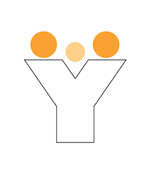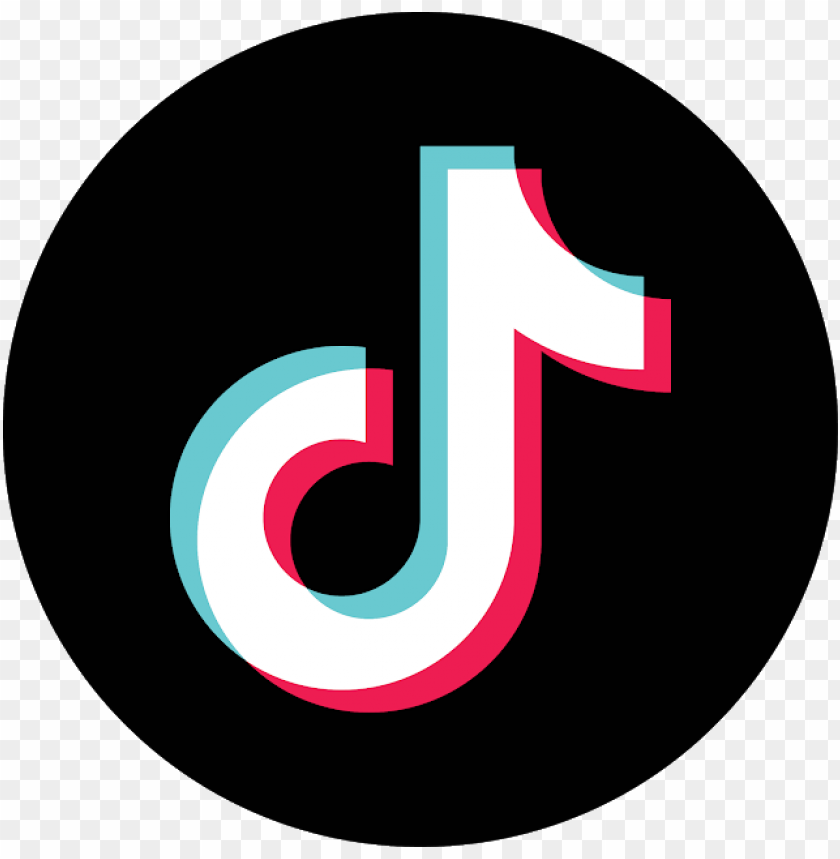
Youth IGF for Francophone voices
IGF Jeunes Francophones
Le IGF Jeunes Francophones donne la parole aux jeunes pour aborder des enjeux clés tels que la cybersécurité et l’inclusion numérique tout en contribuant activement à façonner l’avenir du monde numérique. Soutenu par le Global Youth IGF, il forme la prochaine génération de leaders francophones en gouvernance mondiale de l’Internet et en coopération numérique. Cette initiative est le fruit d’une consultation d’un an avec des jeunes leaders francophones et des experts reconnus, dont l’AFNIC.
The Youth IGF for Francophone voices empowers young voices to address critical issues such as cybersecurity and digital inclusion while actively shaping the future of the digital world. Supported by the Global Youth IGF, it nurtures the next generation of French speaking leaders in global Internet governance and digital collaboration. This initiative is the result of a year-long consultation with Francophone youth leaders and renowned experts, including AFNIC.
Mission
The mission of the Youth IGF for Francophone voices is to amplify the voices of Francophone youth in Internet governance by creating a platform for dialogue, capacity-building, and advocacy. It seeks to inspire young leaders to engage with global and regional Internet governance forums, contribute to policy development, and champion the unique needs and perspectives of Francophone communities in the digital age. By fostering collaboration between youth, policymakers, and stakeholders, the initiative aims to bridge the digital divide, ensure equal opportunities, and promote a sustainable and inclusive Internet for all.
Vision
The Youth IGF for Francophone voices envisions a connected and inclusive Francophone digital ecosystem where young people are empowered to influence Internet governance and shape the future of a free, open, and sustainable Internet. Through collaboration, innovation, and education, the initiative aims to foster meaningful youth participation in creating policies that promote digital accessibility, equality, and innovation across Francophone communities worldwide.
Background
The Youth IGF for Francophone voices was established to address the growing need for youth engagement in Internet governance, particularly from Francophone regions. Recognizing the unique linguistic, cultural, and socio-economic challenges faced by Francophone communities in the digital landscape, the initiative aims to create a space for young people to voice their concerns and contribute to shaping Internet policies.
The Francophone digital ecosystem encompasses a diverse range of countries and cultures, each with unique challenges in connectivity, digital literacy, and policy advocacy. The Youth IGF for Francophone voices works to bridge these gaps by empowering young leaders through training, workshops, and forums that highlight the importance of inclusive governance and ensures the Francophone voice is represented in global Internet governance discussions.
Through its activities, the Youth IGF for Francophone voices aspires to create a generation of informed, engaged, and capable digital leaders who will advocate for policies that promote an inclusive, resilient, and innovative Internet for Francophone communities.

Learn more about the UN IGF!
The importance of hearing the voice of the younger generations on digital cooperation was underlined by different stakeholders during the annual UN Internet Governance Forum. In efforts to fulfil the UN IGF’s mandate and build on the recommendations of the UN IGF’s Retreat in 2016, the UN IGF Secretariat is conducting systematic efforts to engage young people on internet governance. The Youth IGF for Francophone voices secretariat is hosted by the Global Youth IGF, of which the Youth IGF for Francophone voices is an affiliated member. The Youth IGF for Francophone voices is an independent Youth IGF. The Global Youth IGF is the global Youth IGF Movement, which is a capacity development initiative of an international scope. The Global Youth IGF is recognised by the UN IGF.
MAIN LEAD

Astou Diouf
Astou Diouf is a legal expert and PhD candidate in Private Law at Cheikh Anta Diop University in Dakar. She serves as the Head of Research at the JONCTION Organization, focusing on digital rights issues such as data protection, privacy, artificial intelligence, cybersecurity, and freedom of expression online. As a legal consultant, researcher, and author, she has published numerous studies on topics like Senegal's National Cybersecurity Strategy, online freedom of expression, telecoms' responses to COVID-19, and digital platform regulation in West Africa. A recipient of the 2020 CIPESA research grant and the 2022 Gaetan Mootoo fellowship for human rights defenders, she also authored the 2022 Digital Rights and Inclusion Report for Senegal (LONDA), published by Paradigm Initiative Nigeria.
ADVISORY COMMITTEE


Moctar Yedaly
Yuliya Morenets
Moctar Yedaly is a distinguished expert in digital transformation and cybersecurity, currently serving as the Africa Region Director for The Global Forum for Cyber Expertise (GFCE), where he focuses on advancing cyber capacity initiatives in Africa. He previously held key ministerial roles in Mauritania, overseeing digital transformation, innovation, infrastructure, and postal sector reforms. From 2007 to 2021, he led the African Union's Information Society Department, spearheading ICT policies and cybersecurity efforts, including the creation of the African Union's Malabo Convention on Cybersecurity. With a robust background in satellite communications and network operations, Moctar has worked with organizations such as INTELSAT and RASCOM. Holding advanced degrees in electrical engineering, telecoms, and business, he is fluent in Arabic, French, English, Russian, and Wolof, and was instrumental in the delegation of the Dot Africa domain name.
Yuliya Morenets is a distinguished leader in internet governance and cybersecurity, with a focus on empowering users and fostering a safer digital environment. She has authored and co-authored regulatory frameworks in multiple countries, demonstrating her deep understanding of ICT markets and cybercrime challenges. Her three terms as a member of the United Nations Internet Governance Forum Multistakeholder Advisory Group (UN IGF MAG) further underscore her leadership in advancing digital transformation. Within the MAG, Yuliya played a key role in shaping global internet governance discussions (incl. the creation of the Youth IGF), promoting inclusive policymaking, and addressing pressing challenges such as cybersecurity, DNS abuse, and the digital divide. Under her leadership, the Youth IGF established the first-ever Youth Committee in the DNS industry, in collaboration with EURid, focusing on involving young people in DNS policy development and promoting awareness of DNS security.
ORGANISING COMMITTEE 2025




Dr Qemal Affagnon
Paul Alain Zibi Fama
Athanase Bahizire
Leena Boodhoo
Dr. Qemal Affagnon is a professional with over 10 years of experience spanning communication, science and technology, academia, and industry. His expertise covers a wide range of fields, including big data, African studies, new media, web 2.0, broadcasting, politics, journalism, university teaching, and academic writing.
Dr. Affagnon has collaborated with prestigious organizations such as the United Nations, the Dakar Forum, and the National Democratic Institute (NDI). He has held notable positions, including Head of the West Africa Division at Internet Sans Frontières and served as a keynote speaker at the Dakar Forum.
Paul Alain Zibi Fama is a dedicated professional with valuable experience in telecommunications, particularly within Cameroon and the Central African region. He has contributed to key initiatives at Camtel, focusing on improving digital infrastructure and fostering connectivity. His expertise spans network operations and supporting efforts to advance digital transformation in the region.
Athanase Bahizire is a computer engineer and youth advocate from the Democratic Republic of Congo (DRC). A member of the Internet Society DRC Chapter and co-founder of Youth IGF DRC, he promotes online child protection, digital inclusion, and Internet unity. Recognized as an Internet Society Youth Ambassador (2023) and ICANN78 fellow, he actively contributes to the Internet governance ecosystem.
Leena Boodhoo is the Youth Director at Halley Movement, a Mauritian NGO focused on children, young girls, and women. She leads youth projects and represents the organization at national and international forums on research, advocacy, and lobbying.
An experienced speaker on topics like education, internet safety, and climate change, Leena promotes the Sustainable Development Goals by empowering communities. She has spoken globally on online child exploitation and holds a Master’s in Management and Education from the University of London.



Ahouefa Huguette Sossou
Constant Konan
Daouda Ouattara
Ahouefa Huguette Sossou, a Togolese lawyer and human rights defender, works at the Centre de Documentation et de Formation sur les Droits de l’Homme (CDFDH), contributing to reports submitted to international mechanisms. As a project manager, she leverages digital tools to raise awareness and educate about human rights. She is also an active member of the Alternative Leadership Group and a web writer for http://Afebia.tg . Passionate about promoting human rights, she dedicates her expertise to social justice and actively works to strengthen both local and international governance.
Constant Konan is an Ivorian researcher specializing in digital rights and inclusion since 2019. With master’s degrees in bioethics and humanitarian project management, he has authored several publications, including a book on cybercrime in Côte d’Ivoire (2020) and recent work on digital rights (2023). Actively involved with universities and NGOs, he brings strong expertise in scientific research and project management across fields such as education, ICT, sustainable development, and security governance.
Daouda Ouattara, a human rights advocate in Burkina Faso, has 6 years of experience and expertise in international and public law, further strengthened by his doctoral studies. As a part-time lecturer at private universities, he shares his knowledge while delving into digital law issues.
An academic author and Program Officer at an NGO, he actively contributes to human rights discourse and implements concrete actions to improve their protection in the region.



Amadou Sanda Dan Tani
Sekou Sissoko
Simone Toussi
Amadou Sanda Dan Tani, a Nigerien legal and political expert, specializes in human rights, project formulation, and management. With professional expertise in justice and the rule of law, he is also deeply passionate about internet governance and its contemporary digital challenges.
Sekou Sissoko, a Malian national, is a trainee magistrate and a PhD candidate in private law. He also serves as the President of the Association of Jurists for the Promotion of OHADA Law in Mali (AJPDOM), where he actively works to advance and promote OHADA law within the legal community.
Passionate about the evolution of law, Sekou has recently developed a strong interest in digital law, an emerging field. This focus allows him to combine his expertise in private law with the legal challenges posed by the digital transformation.
Simone Toussi is a project manager for Francophone Africa at the Collaboration on International ICT Policy for East and Southern Africa (CIPESA). She focuses on the intersection of policy, digital technology, democracy, and human rights. Her work involves conducting research, building stakeholder capacity, and advocating for African digital policies that respect human rights and support democratic processes.


